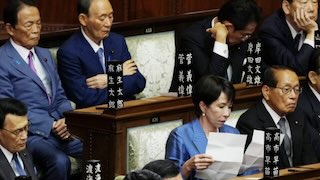TOKYO, Nov 08 (Xinhua) - An advisory panel for the finance minister on Monday proposed that the Japanese government end free-of-charge coronavirus vaccinations, highlighting concerns over a further increase of its financial strain.
Japan's Ministry of Finance convened a subcommittee meeting on Monday and asked a panel of experts to start discussing possible charges for the COVID-19 shots, like the ones for seasonal influenza and other infectious diseases.
The finance ministry said the free inoculations have put a huge financial burden on the central government, and citizens should shoulder part of the costs for future shots.
According to the ministry, the Japanese government has spent about 17 trillion yen (116 billion U.S. dollars) to aid medical services in the fight against the COVID-19 pandemic, with expenditures including the securing of hospital beds and facilitating the supply of free vaccines.
In fiscal 2021, which ended March this year, Japan has spent 2.34 trillion yen procuring vaccines for medical facilities, with each shot costing around 9,600 yen, compared with 5,000 yen for a flu shot, it added. ...continue reading















